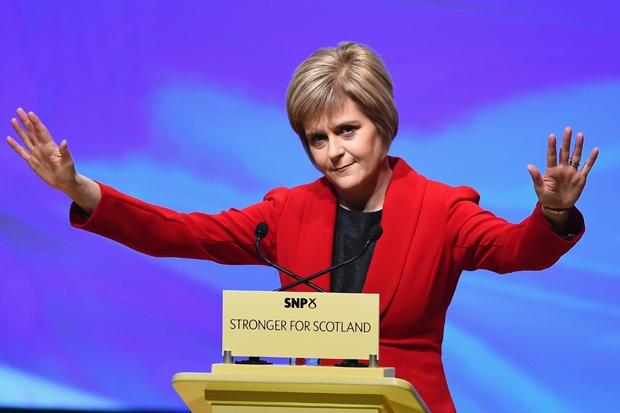If the election in England is the political equivalent of trench warfare with Labour and the Tories inching forwards and then back, what’s going on in Scotland is a rout with the SNP driving all before it. What is remarkable is how the Nationalists are even in with a chance of winning seats such as Edinburgh South West that voted No by a more than twenty point margin.
At the moment, everything their opponents throw at it seems to bounce off the SNP. The so-called Sturgeon memo, which claimed that she had told the French Ambassador that—contrary to all her public protestations—she would prefer Cameron to Miliband as Prime Minister, was the big story this time last week. But now, it is an irrelevance. No party leader dared raise it in the Scottish debates this week and its only effect appears to have been to fire up the Nationalist base who are convinced that it was a Westminster dirty trick. On a more substantive level, the fall in the oil price—which makes a mockery of the economic assumptions in the independence white paper—also barely features in Scottish debate.
The SNP recipe for success is, as I say in the column this week, relatively simple. They’ve mobilised the vast majority of the Yes vote behind them, which even in seats that No won comfortably last year is enough to make them competitive under first past the post. Then, they’ve added to that a highly popular leader in Nicola Sturgeon. Talking to people in Scotland, I was struck by peoples’ sense of almost proprietorial pride in her. Her story—she was first in her family to go to university—seems to speak to a Scots sense of identity.
If the SNP do win a majority of Scottish seats, as looks highly likely, it will have a profound effect on the UK. A Nationalists party will be able to claim at Westminster that it speaks for Scotland. It will use this platform to make the case for independence at every opportunity. This might have a greater effect on the future of Britain than who the Prime Minister is after May 7th.







Comments